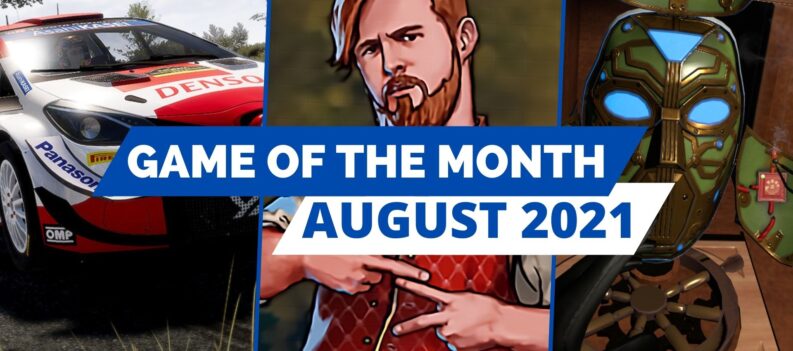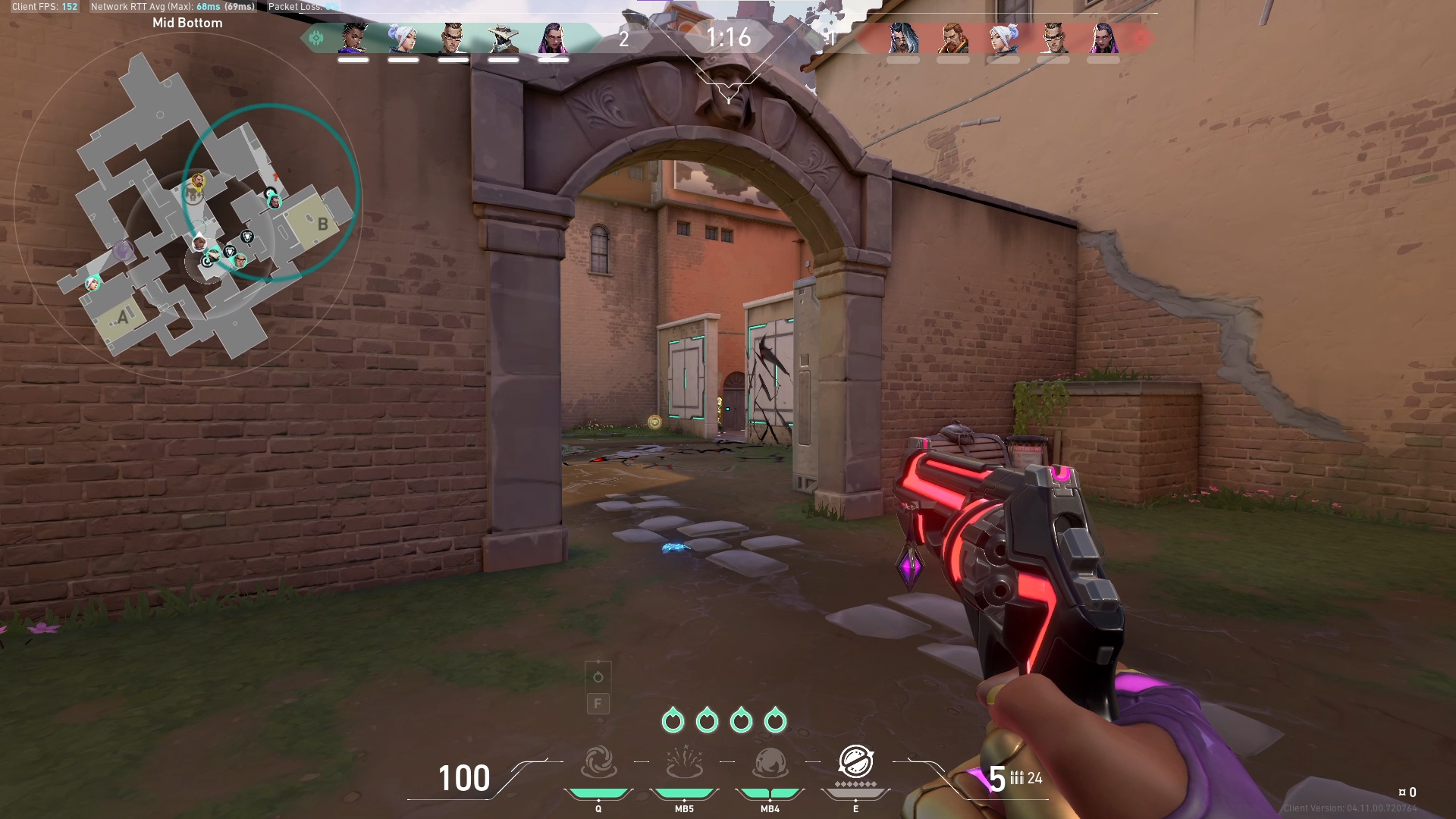Vomit. Lots and lots of vomit. That’s how I’d sum up my first couple of hours with DriveClub VR. As I mentioned briefly in my review of the PlayStation VR, DriveClub was my first foray into virtual reality racing. At first it was full of splendor as I looked around my car, poked my head out the window, and even tried to grab the dashboard instinctively. Then I hit the accelerator and things took a turn for the worse.
To be fair, this was my first ever proper play of a game in virtual reality, and while the first couple of hours involved lots of heaving and throwing up my dinner, I came away a changed man. Yes, DriveClub VR is actually good. In fact, I’d go as far to say that it’s very good. It’s not without its problems though.
See, unlike regular DriveClub, DriveClub VR places you directly in the game – so long as you opt for the cockpit view and not the third-person camera. You can poke your head around the inside of a car and really have a good nosey at what’s going on. I spent my first few minutes just looking around and seeing what the limits were; there were none. I was free to look behind me and see the empty seats. I was free to shove my head through the window (though no shattering glass, unfortunately) and I was free to get down on my knees and really inspect the pedals.
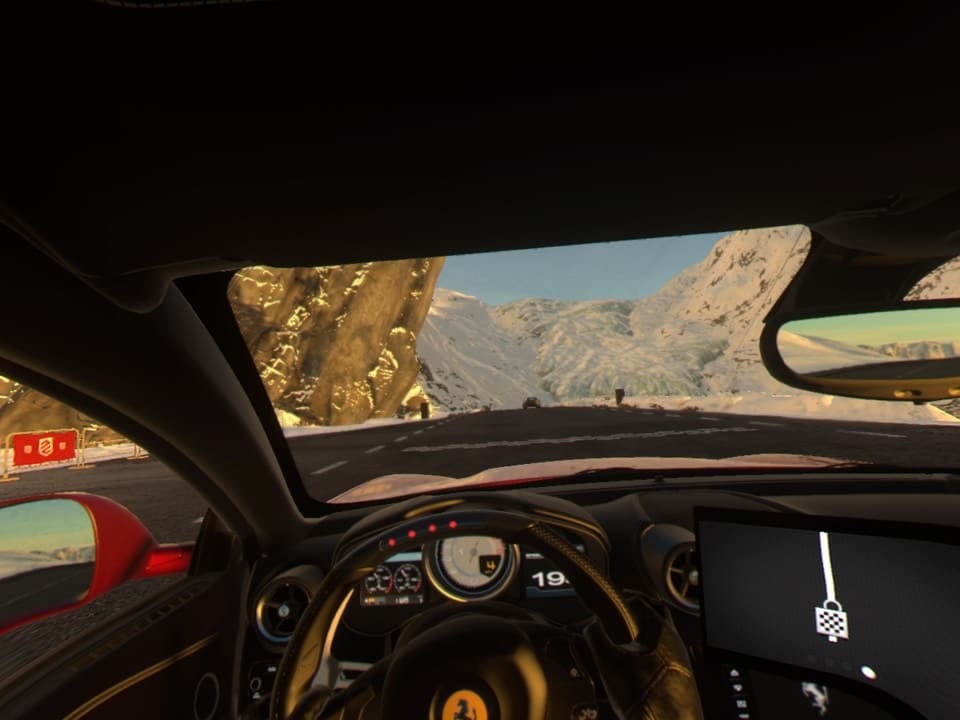
Once I’d gotten over the VR sickness (this may vary between players,) I was having a whale of a time. Granted, I didn’t use a proper wheel, though I did manage to do alright with the next best thing: the DualShock 4’s motion controls. You can play the game with the traditional controller configuration, or you can go into the settings and change the controls so that moving the DualShock 4 left and right mimics the movement of the wheel.
I found this to be the optimal way to play and it really got me into the game, so much so that I’d look down at the gearstick when I heard the engine hit that ‘sweet spot’ before gear changes, but gear changes happen automatically… Still, I was very impressed, even more so when I was nipping around corners and instinctively checking my mirrors for the competition. It’s barmy, let me tell you that.
The VR aspect of DriveClub is more than just a tacked-on gimmick. You get a better sense of depth that allows you to judge those tight turns more accurately, and flying past an opponent for the first time had me looking left and giving the finger before I realised I’m sitting in my living room, not in my car on the autobahn. Honestly, this VR business does strange things to a man’s mind.
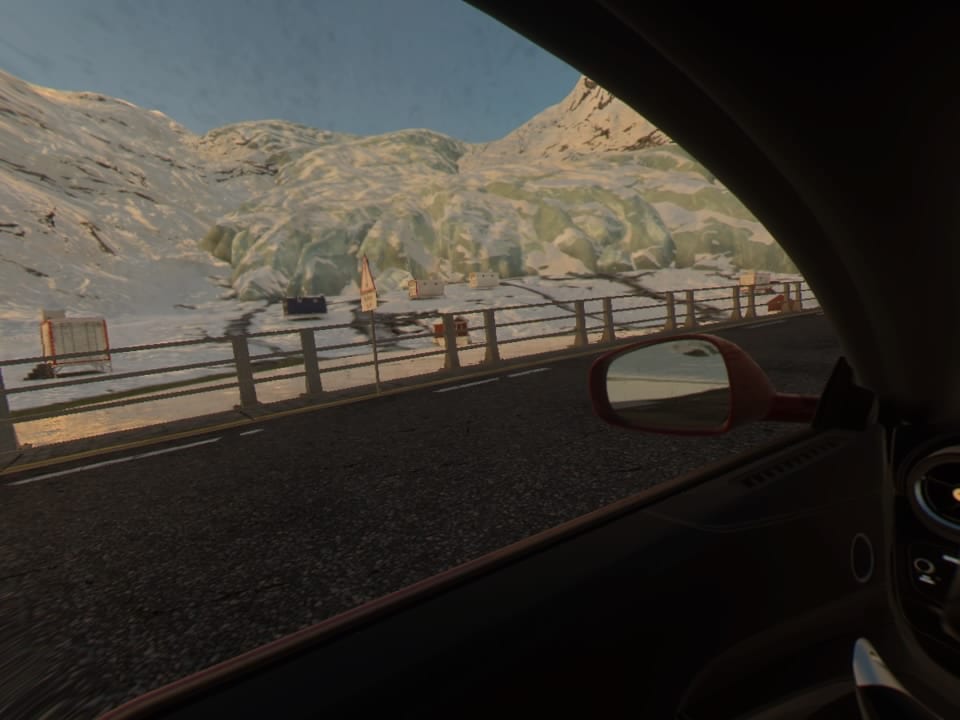
Much like OG DriveClub, there’s a fully fleshed out campaign to work through: you’ll race in events to gain stars, take on challenges, and compete in championships. It’s the same gameplay progression system, just with the added bonus of VR. In addition to the regular features that have carried over from the original release, DriveClub VR also has a new mode: Cruise. You can simply take your car of choice onto any track that you fancy in any destination and just drive. I think the idea behind it was that you’d be able to coast along the winding roads of Chile, or the snowy peaks of Norway and just enjoy the surroundings without the pressure of trying to win a race. That’s not the case, but I’ll get to that in just a moment, but you should also know that there’s also the trademark multiplayer (minus the months of crap servers!) with support for club building, so nothing has been cut that you’d miss – apart from the graphics.
DriveClub isn’t the best racer on the market, especially now that Forza Horizon 3 is out, but it did well by having a decent driving model that hangs somewhere between simulation and arcade, as well as some pretty remarkable graphics. I’d argue that DriveClub has coasted on its graphics rather than gameplay, but that’s not the case with DriveClub VR; gameplay is what will make you go “holy shiiii…”
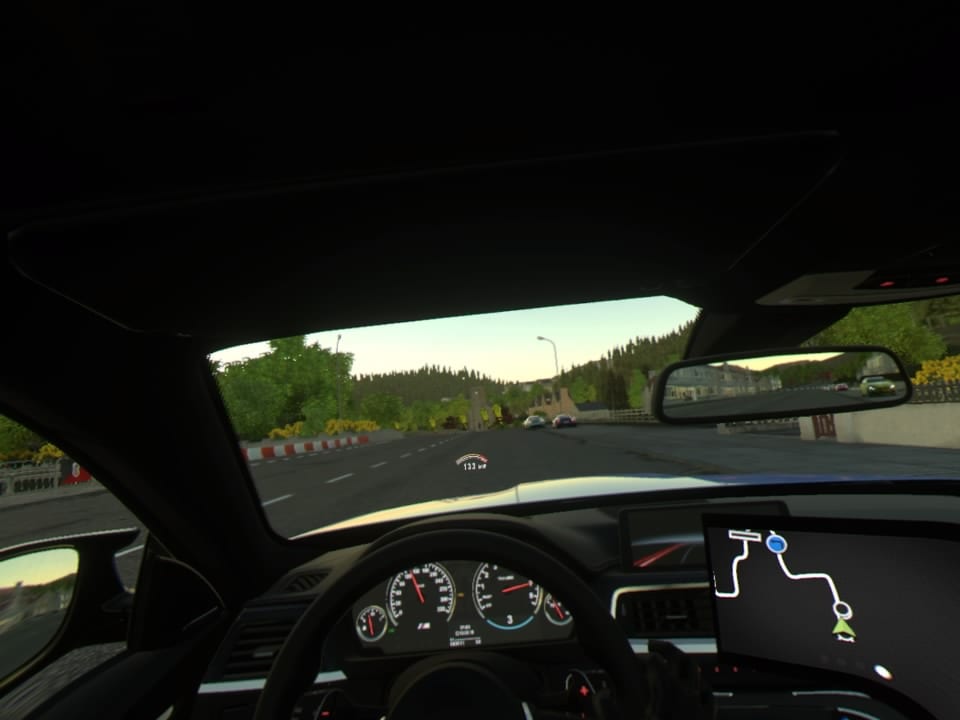
In order to get the game running on the PlayStation VR, sacrifices had to be made. Yes, the graphics are nowhere near as good as the OG DriveClub, and the visual fidelity does harm the game at times. For example, driving at night is a royal pain in the arse due to the aggressive pop-in of objects and the blurriness of distant objects due to the lower resolution. Gone are the dynamic weather patterns that’d see you coast the first half of a race before you buggered it up due to rain (or at least that was my excuse). Gone are the far distant mountains that glimmer with snow, instead they’ve been replaced with horribly blurry and bland blobs that sort of resemble what they’re supposed to be. In this sense, DriveClub VR is a shadow of itself.
It’s not all bad on the graphical end of things; a lot of work has gone into getting the interiors of cars to look as good as possible, though they still appear a little fuzzy when you hone in on specific details, specifically, the speedometer. How’re you supposed to know how fast you’re going if the numbers are an indistinct smear of white?! Some cars remedy this by having the speed projected to the windshield, though this is only for specific models that actually allow this in real life.
The bottom line is that DriveClub VR could have been worse. Sure, it has its problems but the fact this is running on PlayStation VR with a stock PS4 is an achievement in itself, but to have it actually work so well that I had fun? Miraculous, I tell you. Let me put it this way: I don’t think I’ll be touching the regular DriveClub again.
DriveClub VR PS4/PSVR Review
-
Overall - Very Good - 7.5/107.5/10
Summary
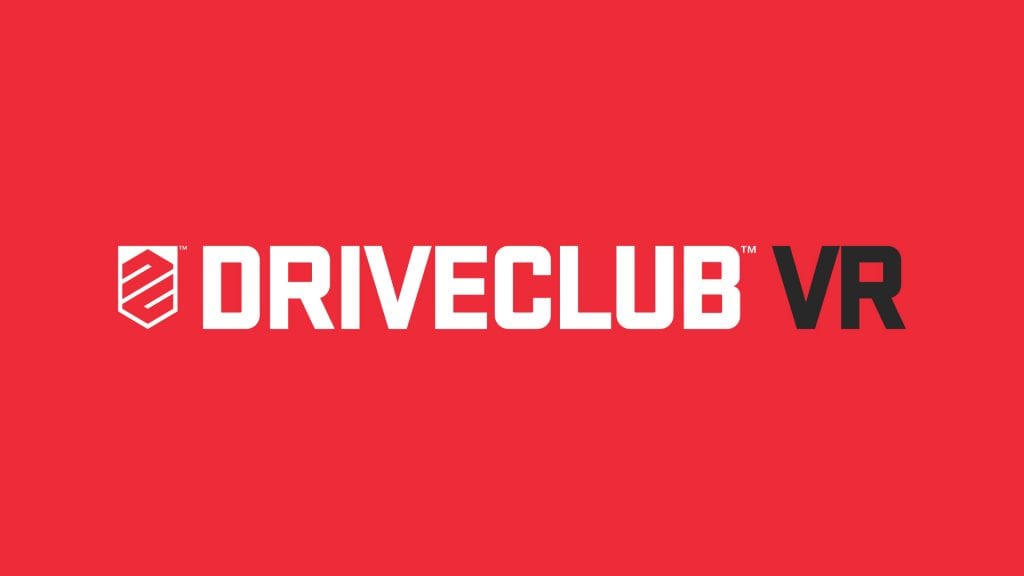
Yes, the visuals have taken a hell of a beating to get DriveClub VR running on PlayStation VR, but even without the game’s trademark obsessive attention to detail, DriveClub VR provides a hell of a lot of fun. Just, er, make sure you’ve got a bucket parked next to you. You know, just in case.
Review Disclaimer: This review was carried out using a digital copy of the game bought at the expense of the reviewer. This has no effect on the content of the review or the final score awarded. For more information, please read our Review Policy.




